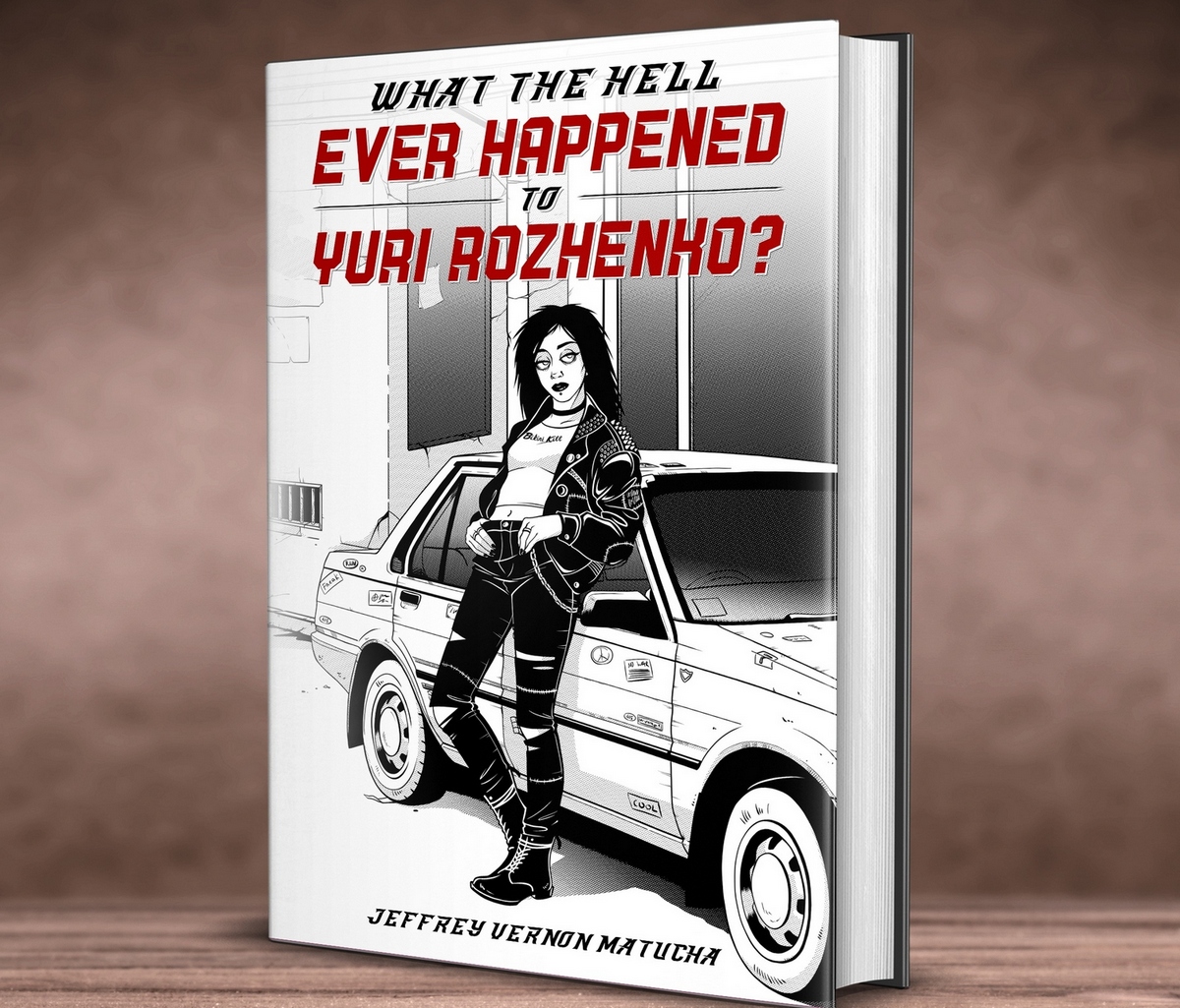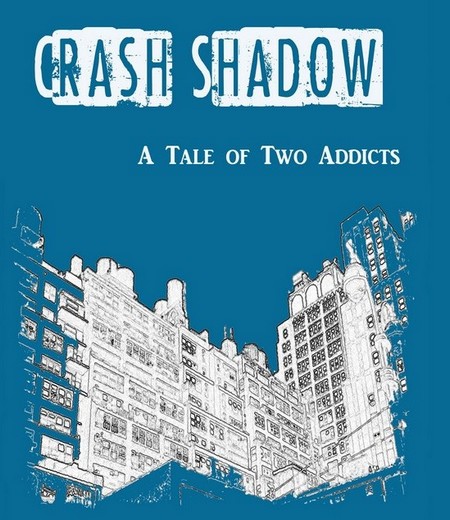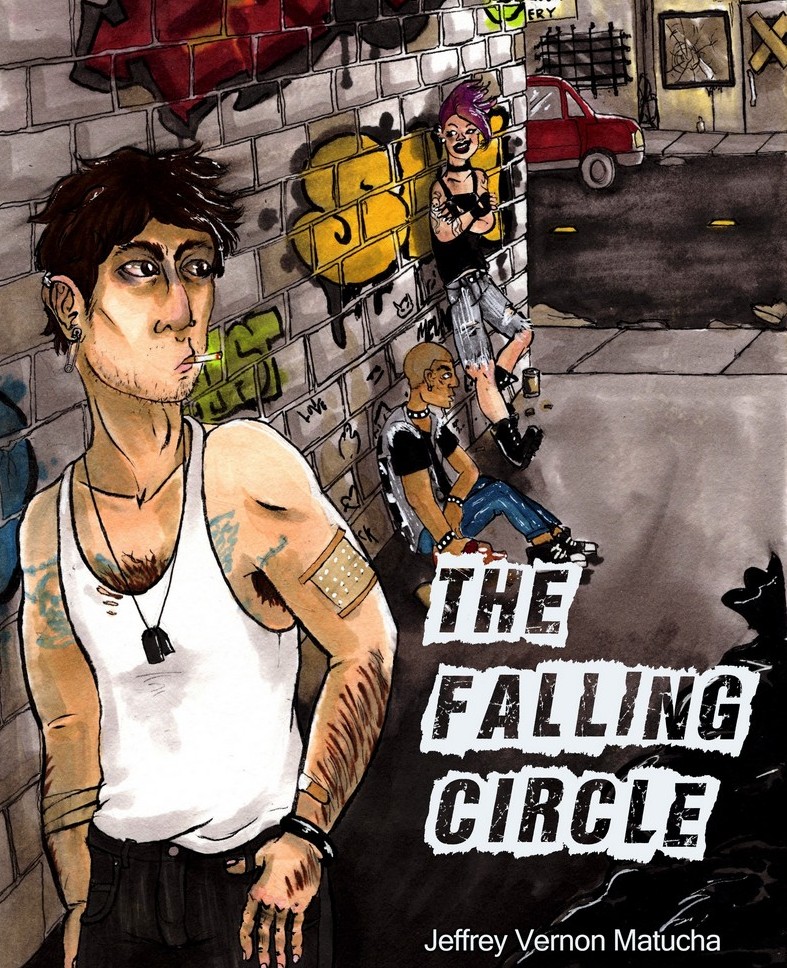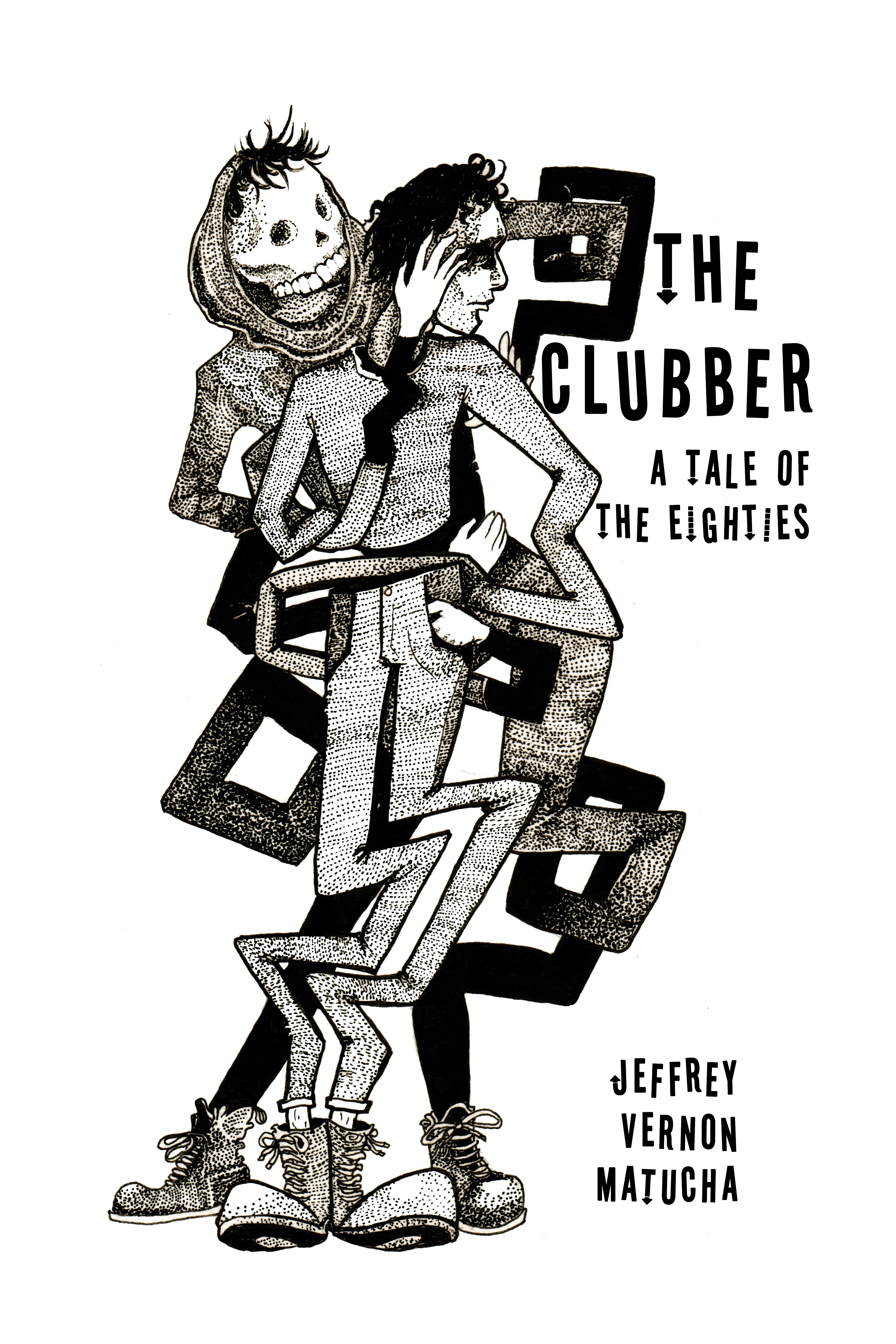It’s pride month, and when people talk about LGBTQ issues, representation in fiction is a big issue.
I write literary ficton about the urban underworld: clubbers, drug addicts, artists on the fringes of life, and the working poor. There are gay characters in all of my works, but I don’t say I have gay characters in my stories, I have characters who happen to be gay. Even so, that is a facet of who they are.
The gay characters in my books are most definitely part of those urban tribes, and I have gotten friction for some of the ways I’ve portrayed gay people, specifically because of the realms they inhabit, and also because of of some criss-crossing subcultures. The gay characters in my stories are the kind of people who are more likely to listen to Tribe 8 and Pansy division than they are Indigo girls or Barbara Streisand.
I think that really speaks to gay subcultures. Yeah, they have those. An older gay man remarked that he didn’t like the appropriation of the word “queer” by gay culture, saying that if you tried calling Harvey Milk queer back in the eighties, you would have ended up with a broken nose. There was also a dust up at a writers group when I referenced a song by the band Tribe 8, when I used their song Neanderthal Dyke as a reference in a short story. Some angry fellow writers thought that was quite derogatory. When I tried to defend myself by pointing out that it was the name of a song written by a lesbian band they didn’t believe me, saying a lesbian would never write such a song. They simply weren’t in tune with the culture of queercore.
Not that all of my gay characters occupy one specific subculture. In my earlier work The Falling Circle the main character Preston is oftentimes helped out during his couch surfing time by his friend Thea, who is an eclectic artist living in a warehouse and who occupies an artistic realm that skirts between the fringe and mainstream media worlds. He eventually finds a room at a house run by a tall and domineering woman name Tam, a sex worker and punk who wears black denim and leather and has a wild plume of colorful hair. At one point, Preston semi-facetiously tries to fix up his friend Thea with his de facto landlord Tam, mostly by teasing Thea, who is not by any means a domineering woman like Tam.
In the same book, Preston gets his new place because of his friend Mark, a very well groomed clubber who occupies the New Wave and Goth scenes in the Bay Area. (Think Duran Duran hair.) Preston knows Mark primarily from the cafe scene in Berkeley. Preston knows Mark is gay, and he knows he has a boyfriend, but Preston is quite surprised when he meets Mark’s boyfriend Sabre, because Sabre is one of the wild clubbers on the scene: dressing up like a screaming queen, getting wrecked on liquor and drugs by default, and almost constantly trying to press peoples buttons with over-the-top behavior. Preston is surprised that Mark would ever go out with such a man, simply because their personalities are so different.
There’s also the couple Mercy and Linette in my book Crash Shadow, my book on the addiction adventures of Skye and Yuri. Mercy is much more together than her girlfriend Linette, as Linette is always sneaking off to embark on wild(ish) drug and party adventures, whereas Mercy keeps trying to reel Linette back into a more stable and mainstream way of living. It’s a relationship dynamic that is basically doomed to fail.
(The couple Mercy and Linette also speak to another facet of representation, as Mercy is not strictly gay. She’s bisexual. And there are some bisexual people who have a thing or two to say about their representation in modern culture!)
An author in the writing community on Twitter tweeted that “Your gay characters don’t have to be perfect. They can have flaws.” Basically speaking to a trend that when many writers have gay characters in their stories, their line of thinking is “Oh, gay character, gay represent!” And as a result a lot of gay characters in fiction end up being quite altruistic and very honorable. When I saw that tweet I thought to myself “Yeah, I think I got the flaws thing covered.”
The characters in my works move along the undercurrents of the concrete jungle, and many of those undercurrents intersect. My character Skye Wright runs into a punk hobo named Onion in my book What the Hell Ever Happened to Yuri Rozhenko? because she spots one of Onion’s punk patches on her jacket when she’s boarding a bus. They immediately relate and become quick friends, mainly because of their connection to punk culture.
One thing I don’t usually do in my fiction is go out of my way to point out my gay characters are gay. It’s not a Will and Grace facet that I employ in my works. In writing this essay where I am thinking about the gay people in my stories, I wondered if I should try to gather all of the homosexual characters from all of my stories and put them in the same room and see what happens. And then I have to try to remember which of my characters are gay and which aren’t. And then I wonder, should I put in that bit character that only had a couple of lines? Should I include all of those people who Sabre invited to that disastrous party at the house? What about Mercy? She swings both ways. Does she get to go into the gay room? (Maybe she can go halfway in?)
I did write one chapter in my last work What the Hell Ever Happened to Yuri Rozhenko which did go out of its way on a gay tangent. The posted excerpt of the scene was entitled The Horniest Lesbian in the World. This is based on an incredibly silly conversation that the punk hobo Onion instigates with her crew, in which Onion relates a legend of an incredibly gigantic and sexy woman who spans thousands of miles. (Check out the excerpt for more details!)
In that scene, the main character Skye runs up against one of Onion’s friends, a rather large and impressive punk who goes by the name Scorch:
“Are y’scared?”
“Scared?”
“A lil’ breeder like you surrounded by all these bulldykes?”
“Butch please. I’m a clubber from San Francisco. I’ve known hyper-macho diesel dykes that make you look like a lipstick lesbian!”
This interchange was inspired by my wild clubbing days and involvement in all of the crazed cultures in eighties San Francisco, which was ground zero for gay activism and defiance in the United States. Back then, much of gay culture had its volume turned all the way up. It was the era of screaming queens and hyper-macho dykes. Many gay people in that time and place lived their lives in defiance, not by just bending gender, but by turning it on its ear and twisting it around like a pretzel. They weren’t out to deconstruct mainstream preconceptions of gender, they were taking a sledge hammer to it. Which is something that some of my characters do. Yeah, I don’t go out of my way to slap a gay sign on them, but many of them are definitely part of that realm.
Obviously there’s a spectrum to gay culture, but things are much different now. That was a kind of time and era we will probably never see again. Buddy Cole, Scott Thompson’s hyper gay character on Kids in the Hall, said it was a shame that gays were becoming respectable, that they were jibing more and more with the mainstream.
Well, some of them anyways.
Probably not my characters though.

Check out What the hell Ever Happened to Yuri Rozhenko? on Amazon!
Check out Crash Shadow on Amazon!
Check out The Falling Circle on Amazon!
Check out The Clubber on Amazon!



I liked this! Added your books to my wishlist. I like that it’s not about lgbt characters, they just happen to be and other parts of who they are show.